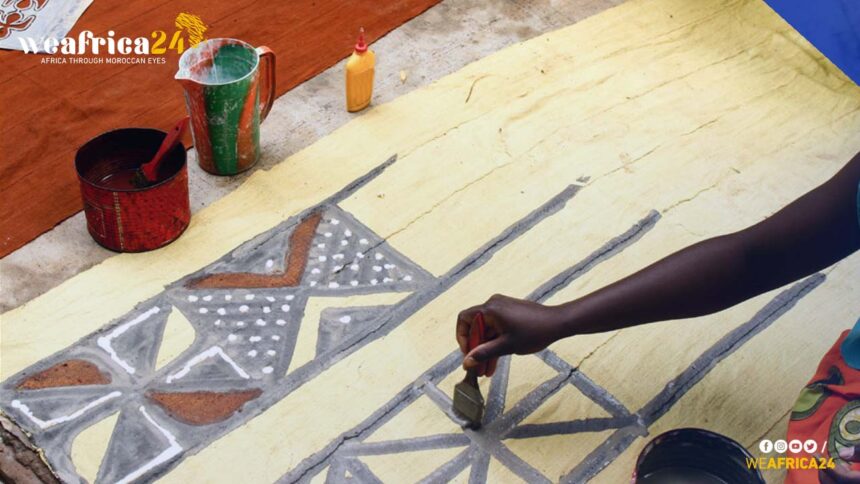In Mali, the art of bogolan involves crafting cotton fabric colored with fermented mud, a practice that has cultural significance and meaning. The term “bogolan” itself translates to “made with the earth” in the Bambara language. To safeguard and promote this cherished tradition, Mali is in the process of establishing a label to officially recognize the national craftsmanship behind bogolan.
In late June, a logo was adopted featuring a traditional mask, which will now be affixed to all bogolan products manufactured in Mali, certifying their geographical origin. The next crucial step involves seeking recognition of this label from the African Intellectual Property Organization (OAPI).
The Ndomo Center in Ségou specializes in the art of bogolan. Here, unique pieces are created and sold not only within Mali but also to customers worldwide. The center also trains young artisans, with its director, Boubacar Doumbia, passionately preserving and perpetuating traditional bogolan methods. He highlights the use of natural colors derived from specific tannin-rich plants, explaining the intricate process involved in achieving the desired shades and patterns.
The establishment of this label comes as an essential means of protecting Malian creators and artists from potential exploitation by textile industries that have shown increasing interest in Mali’s designs. With the growing presence of printed fabrics featuring bogolan-inspired designs throughout West Africa, artisans face challenges in selling their authentic products. The label seeks to provide a much-needed shield to safeguard the livelihood of these skilled artisans and the cherished tradition of bogolan.
Mali’s ambition to obtain certification from the African Intellectual Property Organization for its bogolan artisans within the next six months is a critical step towards not only preserving a cherished cultural heritage but also supporting the livelihoods of skilled artisans who have been instrumental in keeping this traditional craft alive.
Afaf Al Fahchouch







